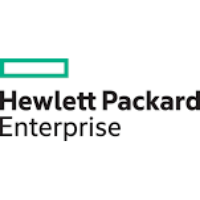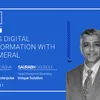
Hewlett Packard Enterprise HPE
View Brand PublisherPreparing for a future of work that is hybrid
As COVID-19 massively accelerates the transition to a location-agnostic model of working, this Future of Work 2021 panel attempts to understand how organisations should prepare for the evolution of remote to hybrid work systems.
It’s increasingly apparent that there’s no reverting to the pre-pandemic status quo for workplaces. With most organisations and employees having adjusted successfully to the remote working dynamic, organisations are now looking for new ways to power productivity and iron out challenges for their remote workers, and even strategise a return to work for onsite employees.
As organisations strategise for the new normal, a hybrid workplace is beginning to emerge. It is a workplace that supports a geographically-agnostic, distributed, dynamic workforce with ‘anytime, anywhere’ access to data and tools - underscored by security.
To discuss the future of work systems as organisations plan return to work strategies, this Future of Work panel featured some of the finest minds from India’s enterprise and startup ecosystem including Mahesh Vandi Chalil, SVP - Technology at , India’s largest entertainment ticketing website; Bharat Krishnamurthy, the Vice President - Engineering at , India's largest payments company; Ranjan Sakalley, the Head of Engineering at , the interactive online tutoring platform that hosts India's biggest online test; Rahul Bhargava, Chief Product and Technology Officer, , the new-age financial services platform that leverages technology and data-science to make lending quick and easy; and Vikram Yerram, the Country Manager of GreenLake Cloud Services, HPE.
Organisations and the new normal
Talking about the new normal at BookMyShow, Mahesh revealed that it was indeed going to be hybrid and that the calibre of work trumped location. “It’s about having the right mindset. As a technologist it's about having the maximum productivity. Working should be about tracking results and not about where the work is being done.” He added that if coming to work translated to spending four hours in commute, it was counter-productive.
“The pandemic accelerated the hybrid workforce trend by several years. This is the new normal and nobody's likely to go back.” said Rahul Bhargava, talking about the ‘new normal’ at InCred, adding that they were seeing incredible benefits both from the customer and employee perspective by adopting digital processes increasingly.
The case for remote working
Talking about the business case for remorse working, Rahul Bhargava said, “I want to work with stellar programmers and not incidental programmers. I can now hire anyone from anywhere in India or even the world. And I don’t even have to force them to relocate.”
“Also, I’ve seen that the more diverse our workforce is, the better our product gets,” he added.
Use cases for work in the new normal
“We’re seeing a lot of customers enabling anytime, anyplace working systems for the workforces. And they want to provide secure, robust and available - just like office infrastructure,” says Vikram Kumar Yerram, while discussing customer use cases in the new normal.
With customers looking for innovative consumption-based models, the pressure to build something very compelling for their customers was high, he added. “Customers want the flexibility to consume what they want and pay for what they use.”
Time management, tech and trust in the new work dynamic?
The panellists agreed that result-oriented processes were taking precedence in the new normal, moving away from a prescriptive work model. One simply has to set parameters on how one measures productivity. Everybody has to know what the mission and goal is,” said Ranjan.
The trust cycle is often what gets hurt the most in a remote or blended working environment, he added. “Organisations need to have processes to refresh the trust cycles periodically, and re-affirm the communication guidelines among their workforces.”
According to Mahesh, culture is often driven by trust. “In India, sometimes trust is sometimes a one-way process i.e. employees expecting their managers to trust them and not reciprocating that expectation,” he said.
Working with millennial and Gen Z workforces
Soft skills and culture fits are cross-generational, and that two-way trust and autonomy is the way forward, according to Mahesh. “The right kind of employees are driven by intent and customer obsession. The day you have to ‘manage’ someone is the day you fail as a manager. Maintaining trust, openness, transparency and empathy works cross-generational,” he said.
Rahul believes that the fundamentals of business haven’t changed. “Even with generational change in the workforce, the goal is always to enable people to do what they should be doing. That is the purpose of technology,” he said.
Tech infrastructure to complement the hybrid workforce
Discussing the new trends in tech infrastructure requirements, Vikram said that financials are not driven by what is available, but what is required. “Customers want to map costs with revenue streams and are looking at innovative consumption-based models. Facing stiff competition from public cloud providers, we’re creating compelling solutions that give customers choice of architecture, security. And the flexibility to ask for what they want and pay for what they use.” he said. It’s a hybrid world in more ways than one, he added.
Rahul Bhargava believes that apart from the obvious choices of security, scalability and speed, tech infrastructure in India would need to truly empower the real productivity needs of the average worker; one who might be working out of a smaller home in Mumbai, where real estate is at a premium, or an employee with kids. “We are all dealing with a lot of sensitive data and in this hybrid workplace model, whatever we do, it needs to have the same sense of security as at a workplace,” he added.
Mahesh said that he foresaw a rise in the quality and quantity of collaboration tools that would “solve for the needs of the new hybrid working environment.”
A big shout out to our Future of Work 2021 Co-presenting Sponsors Hewlett Packard Enterprise and Unique Solutions; Digital Excellence Partner, Google Cloud; Associate Sponsor HP and Intel; and Sponsors: Atlassian, Freight Tiger, Archon I Cohesity, TeamViewer, and Pocket Aces.
Edited by Ramarko Sengupta









